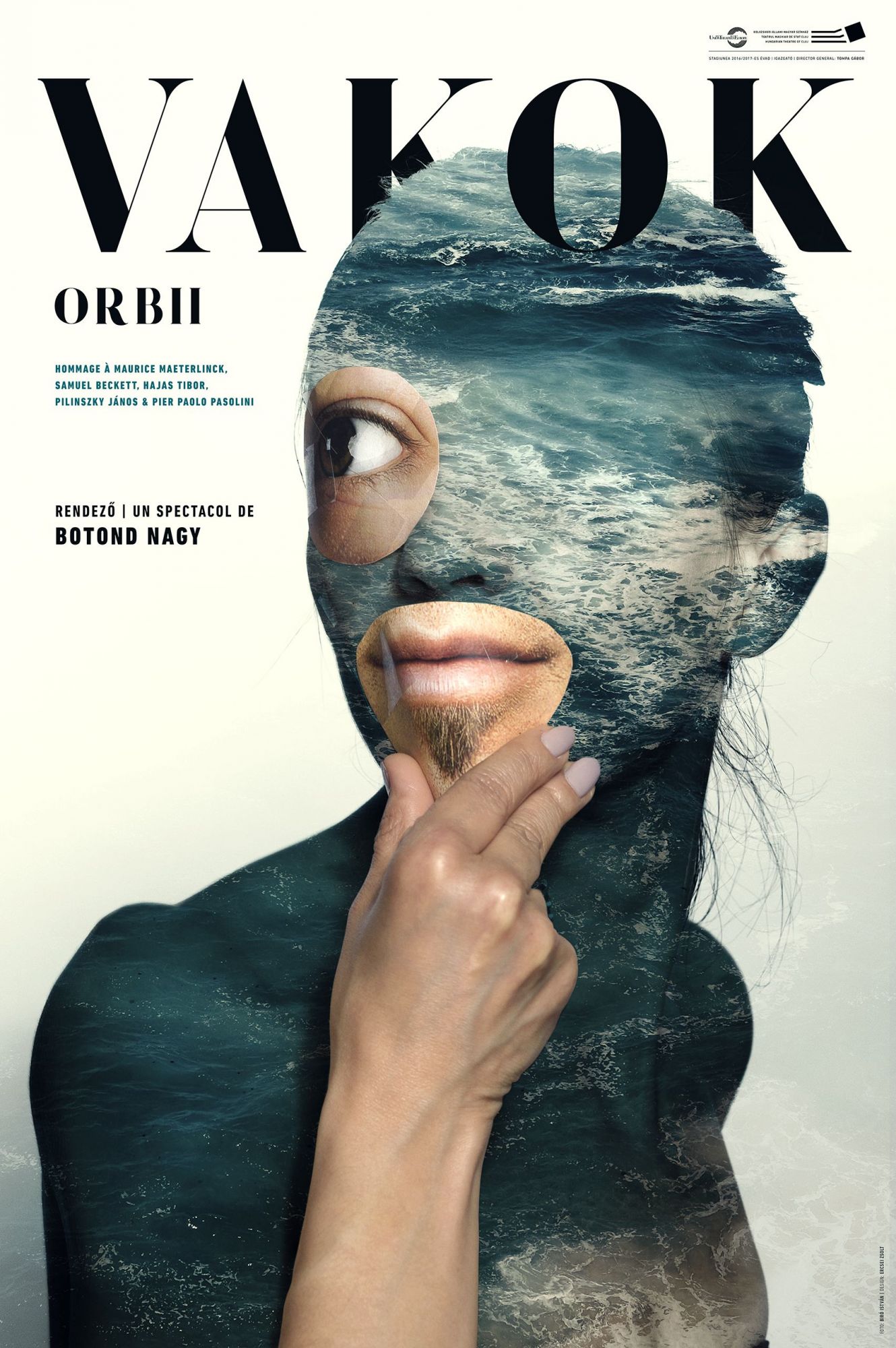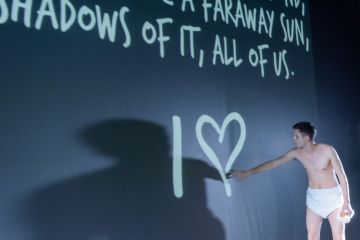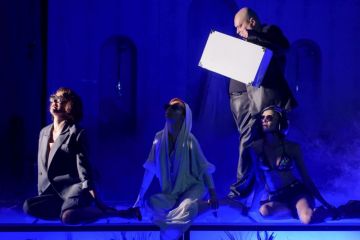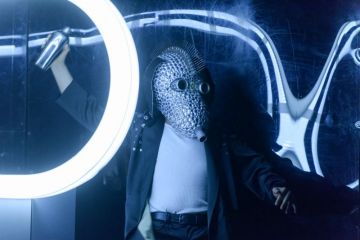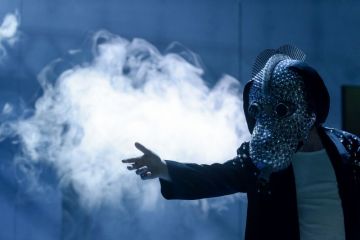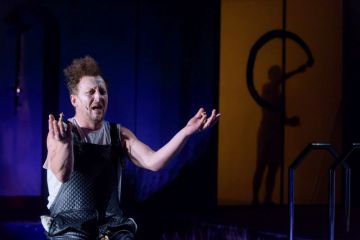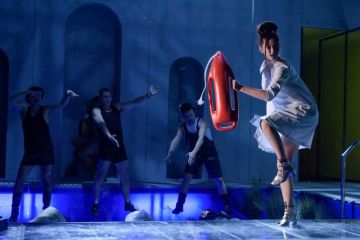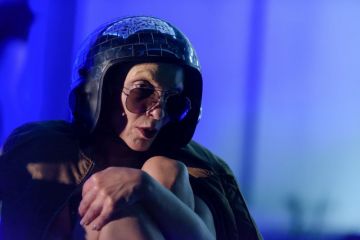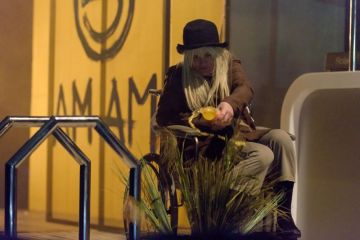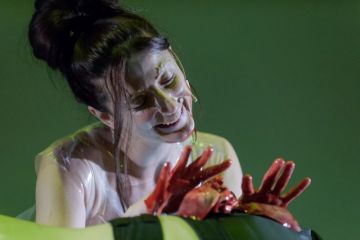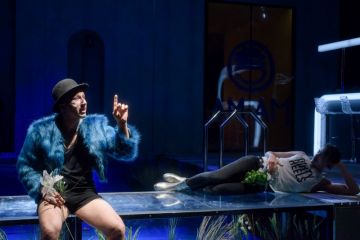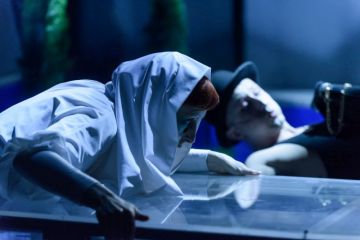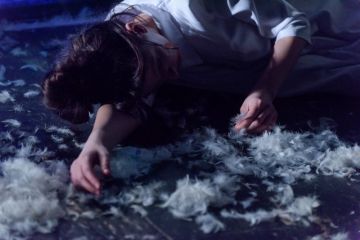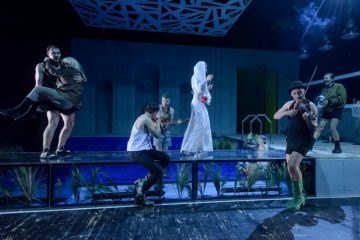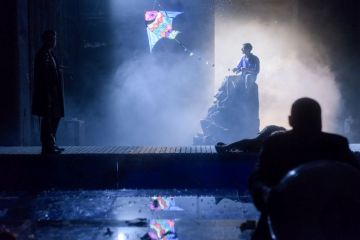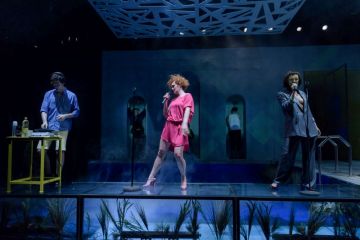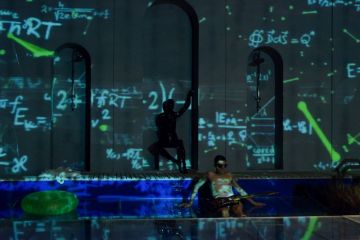Studio Performance in the Main Hall
2h without intermission
Many people have already drawn attention to the need to distinguish between experimental and avant-garde, because experimental art does not necessarily mean radical art. Botond Nagy's staging at the Hungarian Theatre of Cluj is not simply experimental theater, but also an example of avant-garde, and obviously not historical avant-garde. What I mostly refer to is the fact that he manages to courageously move creators and viewers out of their own comfort zones, while looking for radically new paths. (...)
There is no dramaturgy in the traditional sense, but there is collage of materials, and that does not mean randomness. The field of power that organizes the text is neither narrative nor dramatic, the performance itself representing the main organizational element. This collage of materials, the focus of which is the encounter with the performance itself, is true also when it comes to music and lighting, as if all were meeting in an imaginary point, and the encounter itself would create that point: namely the play.
(...)
Many contemporary productions - in the real sense of the word - relevantly address social and psychological problems while at the same time remaining superficial. The Blind manages to avoid this trap. It avoids it, as it exhibits a need for the sacred, and, more importantly, the need for blasphemy as well. There are moments when it manages to destroy social inequalities, but also religious and spiritual confinements. Avant-garde.
As the creators inform us within the guide, there is no unified action: it is a collage, and not only in the sense that certain texts and improvisations are embedded in the text and that the piece starts with the projected text of an English translation of Pilinszky’s poem. But collage also in the sense that actors are where they at time present in their own lives, while at other times they merely mimic their presence, or the image we see before us is a collage itself, even if each of the players has a "big scene", from which we can learn their personal story, their way of thinking, and the motives behind their actions. These individual scenes, which reveal the characters both as actors and as creators who have some kind of professional relationship with the theatre, represent special moments within the performance, on the one hand leaving the conventional format, while the other hand, with these shocking and disconcerting moments adding something to the whimsical whole of the production.
(...)
"I sometimes dream that I can see." "I only see when I dream." It sums up the essence of the performance, the whole made up of a part of the elements, pieces of mosaic, that really do not come together, a faulty whole with which this production characterizes our world, our individual, community existence. Do we really see? Do we see dreams happening? Do people make us believe that the dream that we see before us is in fact reality? Is this beneficial for us? Do we feel at home in it? Aren’t we closer to ourselves if we do not see, but just keep dreaming?
Infinitely rich and extravagant performance: it draws you in, stirs you up, scorches you, expecting an intensely involved participation from the viewer. The games of creative fantasy succeed one another for two hours without interruption in large-scale images, surreal visions, floating études, musical fantasies. There is no story, but the fragments, sketches and slivers depict an entire world. It’s a techno-poetic installation, as its creators themselves proclaim, and yes, the wild techno music pulsates together with a series of poetic visions, a composition of artistic images, animations and video montages with the ritual movement and grotesque acts of living bodies.
DESZKA Theatre Festival, Debrecen, Hungary, 2018.
Date of the opening: May 17, 2017
We, who are participants to this present time, we are both alive and not, in a way. Nothing new can be said anymore. Repetition is boring, and objectivity is boring and so has become even subjectivity itself.
Throughout the duration of one’s life, man does nothing but engage in repetition. In our lives, we are mostly betting on each other’s traumas.
According to the creators, the production does not promise anything, nor does it offer any explanations. It does not want to appear anything more than it is: a collage. A collage about the times we were born into, in which we get to be born into for millennia, about our nonsense, and how we seem to speak to each other and not with each other, about our longing for attention and love.
Blindness is when we don’t see, and blindness is also when we do not want to see. The blinds before us can also be a matter of choice. Nobody can discover the lines running through one’s own palm without cheating.
Human figures, enclosed within a space. Nothing happens outside of humanity itself.
- Sometimes I dream that I can see.
- I can only see if I dream.












